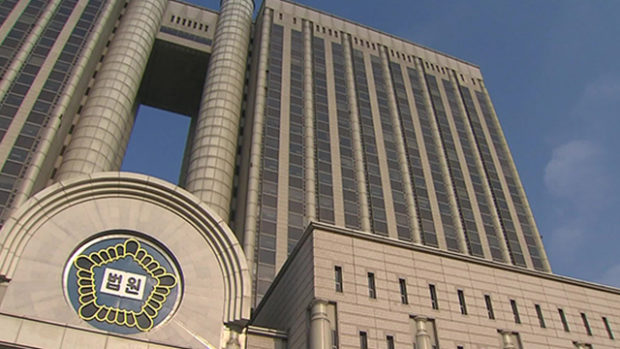Court says no need to release documents on 2015 deal over sex slavery
An appeals court said Thursday the government does not have to disclose documents on the negotiations that led to a controversial 2015 deal between South Korea and Japan on Tokyo’s wartime sex slavery, citing national interest.
Overturning a lower court’s decision, the Seoul High Court ruled that making public the documents, which include diplomatic secrets, could severely violate Korea’s interests and damage ties with Japan.
“If the information is revealed, Japan’s side would be disclosed without its consent, which could seriously deal a blow to South Korea’s diplomatic trust with Japan, and it could cause a conflict of interests or diplomatic tensions,” the court said in its ruling.
Disclosing such sensitive documents could undermine Seoul’s diplomatic credibility and leverage on the global stage, it added.
In 2016, lawyer Song Ki-ho filed a suit asking the court to order the Foreign Ministry to reveal the diplomatic documents related to the 2015 deal, which many victims of Japan’s wartime sexual enslavement oppose.
The lower court earlier ordered the disclosure of the documents for the sake of “guaranteeing the people’s right to know and securing transparency in running state affairs.”
Article continues after this advertisementIn December 2015, Korea and Japan signed an agreement in which Japan apologized to the victims and provided 1 billion yen ($8.9 million) to the Reconciliation and Healing Foundation to “finally and irreversibly” resolve the issue of Japan’s sexual slavery of Korean women during World War II.
Article continues after this advertisementHowever, many of the victims and members of the public condemned the deal struck under the Park Geun-hye administration, slamming the government for failing to consult with the victims. They demanded Japan take legal responsibility and the deal be nullified.
Calling the 2015 deal “flawed,“ the Moon Jae-in administration disbanded the Japan-funded foundation, in a move that drew strong opposition from Tokyo, which demanded Seoul abide by the accord.
Thursday’s decision came amid a deepening diplomatic row between Seoul and Tokyo over wartime history.
The lawyer said he would decide whether to appeal after consulting with sex slave victims.
“The court appears to have given weight to diplomatic ties,” Song said. “I will do my best until Japan acknowledges its wrongdoing, apologizes and compensates for it.”
